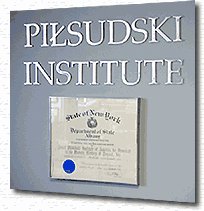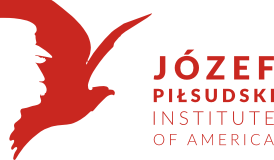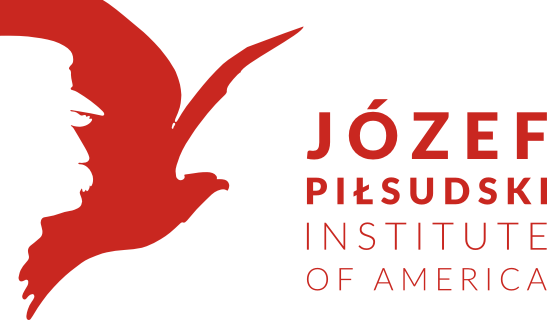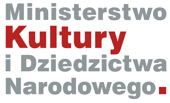
The Institute was founded on July 4, 1943. At a meeting in the Washington Hotel in New York City, an organizing committee was formed to set up a non-political research organization, to be named the Pilsudski Institute of America, for the purpose of studying the modern history of Poland. It would continue the work of the Institute founded in Warsaw in 1923, called the Institute for Research in the Modern History of Poland. In 1936 the Institute in Warsaw was named after Marshal Jozef Pilsudski who died in 1935.
The Pilsudski Institute of America was to carry on the work of the Warsaw Institute until the end of the war, and thereafter continue its activities in America as a branch of the reconstituted Pilsudski Institute in Warsaw.
Among the founders were prominent Polish Americans: Franciszek Januszewski, Maksymilian Wegrzynek and Lucjan Kupferwasser; and well known Polish exiles, former ministers and politicians of prewar Poland: Henryk Floyar-Rajchman, minister of industry and commerce, Ignacy Matuszewski, minister of finance, and Waclaw Jedrzejewicz, minister of education. Franciszek Januszewski, publisher of The Polish Daily in Detroit, became chairman of the Organizing Committee. After his resignation on September 16, 1943, he was succeeded by Ignacy Matuszewski. On December 16, 1943, forty-eight regular members were accepted, the categories of supporting, corresponding and honorary members were created, and by-laws were passed.
The Institute was to collect, protect and process documents related to the history of Poland after 1863, in order to create an archive, publish books and other publications, support scholarly activities, cooperate with other scholarly institutions, provide grants for research on Polish history, and organize lectures and readings. The reconstruction of the Institute in Warsaw after the war was set as a top priority. Unfortunately the Yalta Conference in 1945 sealed the fate of Poland and forced the Institute to continue in New York as an independent entity, with the added mission of promoting full and accurate knowledge of Poland and its most recent history.
The early years were a battle for financial survival, secured mainly by the generosity of the original founders and that of successive presidents and members of the Board who volunteered their time and work. In spite of financial uncertainty, the Institute managed to organize conferences, lectures and exhibits to commemorate important events and anniversaries, to issue new publications while continuing to enlarge its archival holdings and other collections: the library, medals, badges and works of famous Polish painters. As funds permitted, the Institute began to fund prizes for the best historical publications on the modern history of Poland and issue study grants.
The by-laws established in 1943, with revisions in subsequent years, governed the activities of the Institute. In 1951 a new category of membership, "Friend of the Institute," was established; in 1958 the obligation to reconstitute the Institute in Warsaw after the war was eliminated and the Board of Directors was increased to twenty members. The greatest changes occurred in 1976 when on March 19th new by-laws were approved. The Annual Meeting of members was no longer the governing body of the Institute; instead the Board of Directors would elect each year the president and the Executive Committee to be responsible for the realization of the approved program and the day-to-day management of the Institute. Members of the Board of Directors would be elected for life. In 1999, the by-laws were amended to require members of the Board of Directors to be elected for three years, with one-third of the Board being elected each year. In 2006 the Institute had twelve members on the Board.
When Poland regained its sovereignty in 1989, it became possible for the Pilsudski Institute to cooperate with the new Polish government and its institutions. After 2001, the Institute’s close collaboration with the National Headquarters of the Polish State Archives and the support by the Kosciuszko Foundation in New York resulted in grants for visiting archivists from Poland; Pawel Pietrzyk from the Lodz State Archives in 2002, Dorota Kotowicz from the Krakow (Bochnia) State Archives in 2003/4, Dr. Barbara Berska from the Krakow State Archives in 2004/5, and Anna Belka from the State Archives in Warsaw in 2005/6.
Modernizing and preserving the archives requires computerization of archival units, repacking of all files into acid-free folders and boxes, and the installation of modern shelving. The Polish Science Foundation of Warsaw provided the funds for the new equipment.
Together with the National Headquarters of the Polish State Archives, the Institute embarked on the repair and microfilming of documents on the three Silesian Uprisings (1919-1922). The work was done in Poland and the Polish Foreign Ministry paid for the transportation of the successive shipments to and from Poland, with the Polish Consulate in New York in charge of the shipments. Protecting collections of great value to Poland is one of the priorities of the Polish State Archives.
In 2005, the Polish Senate made its first grant to the Institute which included the assignment of Agnieszka Alberska, from the National Library in Warsaw, to begin the work of reorganizing and computerizing the library of the Institute and Dr. Barbara Berska from the Krakow State Archives to continue modernization of the Institute’s archives.
The Institute, with Poland’s and Polonia’s support, will continue to be a beacon of Polish culture in America for Americans and Polish Americans as well as Poles scattered throughout the world who visit the Institute’s website: www.pilsudski.org. For the metropolitan area of New York, the Institute provides numerous programs, including book fairs, film screenings, historical exhibits, lessons for students of Polish history, and opportunities to meet with historians and authors.
















